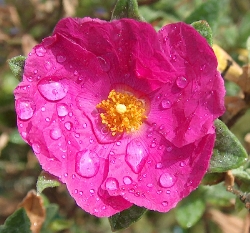
|
Christopher T. George is co-editor of Loch Raven Review.
George was born in Liverpool, England in 1948 and now lives in
Baltimore, Maryland, near Johns Hopkins University, with his wife Donna
and two cats. Chris works full-time as a medical editor in Washington,
DC. He has been writing and publishing poetry since he attended Loyola
College, Baltimore, and studied with Sister Maura Eichner at the College
of Notre Dame, as well as with poets Elliot Coleman and Marion Buchman.
His poems have appeared in numerous publications in the United States
and Great Britain. He is also a published historian and a lyricist for a
new musical,
Jack-The Musical, about Jack the Ripper. George also is the
Editor of
Desert Moon Review and an editor at
Writer’s Block Poetry Workshop.
Brian Strand Brian Strand lives in Buckinghamshire, England, where he was born and is now retired. Brian states that becoming a committed Christian in 1987 was the stimulus that led to writing poetry, articles and essays, and then pursuing painting and art as a retirement hobby. Brian's writings have been published in a variety of small press print magazines and internet poetry magazines. He has self-published three chapbooks to date. |
Summer 2007 Table of Contents - Vol. III, No. 2 |
|
|
Brian Strand, Poiema: A selection of
Ekphrasis poems,
32 pp., 2006, ISBN1-903203-562, card covers, £5.00.
What exactly is ekphrastic poetry or “ekphrasis poetry” as Brian Strand terms it? The poet explains it this way on p. 5 of Poiema: The Ekphrasis poetic form reflects works of art in poetic form and myEkphrasis cover the following three types: A poem that describes a specific work of art. . . One that encapsulates an artist’s general style and One that depicts a particular school of art or genre. I would add the caveat to these definitions that it is perhaps a bit misleading to speak of ekphrastic poetry as being a “form.” More precisely it is any poem, no matter the form, that takes as its subject matter the work of a visual artist. One of Mr. Strand’s preferred forms is the cinquain—a five-line poem with a syllabic pattern of two, four, six, eight, and two syllables. One such cinquain in this chapbook takes as its inspiration Paulo Uccello’s “St. George and the Dragon”: Epitaph for George Mr. Strand uses the cinquain form once again to write about John Constable’s “A Study in Poppies”: Like Fading Poppies Strand finds more inspiration in Constable for two “lanternes”—a five line quintain verse shaped like a Japanese lantern with a syllabic pattern of one, two, three, four, one syllables. The first lanterne was inspired by Constable’s painting, “Spring, East Bergholt Common” and the second is an impression of the great artist’s work in toto: Sylvan Scenes Cockney Visions Neither is Mr. Strand averse to tackling modern artists, as in the following double lanterne on Roy Lichtenstein’s “Shipboard Girl”—Lichtenstein of course being the pop artist who became famous for big canvases of cartoon images using to advantage the colored dots in newspaper print: Shipboard Girl In Poiema Brian Strand is both entertaining and adventurous in his explorations into ekphrastic short-form poetry. Mr. Strand’s other chapbook under review, Short Hand of the Heart: A selection of poetic form is an anthology of yet more short poetic forms. In the Winter 2005 issue of Loch Raven Review, I reviewed Flowers of Life: A Selection of Cinquains, by Scottish poet William Soutar, a chapbook collection edited by Brian Strand. And so in Short Hand of the Heart he includes cinquains by Soutar once again as well as samples by himself. The book then moves on to quintiles. He explains, “A quintile is a poetic form that I devised, prompted by my admiration of the cinquain form created by Adelaide Crapsey. It comprises cinquain poems in their own right, on a common theme, linked by a word or two to form a longer poem of two, three, or four cinquains.” He begins the section with a poem of unlinked cinquains by Bernard M. Jackson and ends the section with the following poem of linked cinquains by himself: Love at First Sight Examples of the “doublet” form follow: a rhymed couplet with lines of ten syllables as in these two examples by Mr. Strand’s Scottish hero William Soutar, which both work effectively in rapid rapier strokes— The Impostor The Other Cheek Copyright © National Library of Scotland The book ends with examples of the “tetractys” form. This is a form somewhat similar to the Fibonacci discussed by Gary Blankenship in the Spring 2007 issue of Loch Raven Review. Strand tells us about the tetractys: “This poetic form was devised by the late Ray Stebbing as a grammatical twenty syllable verse, comprising five lines.” The order of syllables is one, two, three, four and ten, with each line standing on its own, as in the first example given, by John Silverstone: Rhythmic Movement It is also possible to extend the form with double (or more) tetractys or to invert the tetractys with the longer lines coming first then the short lines. An example of each of these variations follows:
Apartheid Slim though Brian Strand’s chapbooks may be, they are fully referenced and lead the interested reader onward to other information on these poetic forms, and thus the books are richly rewarding both in terms of the poetry published and in introducing fellow poets to new forms with which they may not be familiar. Highly recommended.
© Christopher T. George |
|